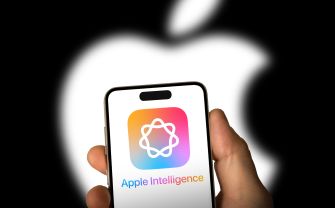A group of authors has filed a class-action lawsuit against Apple Inc., accusing the company of using their copyrighted books without permission to train its artificial intelligence system, Apple Intelligence. The case, filed on October 22 in the U.S. District Court for the Northern District of California, claims that Apple’s AI models, including its OpenELM and Foundation Language Models, were trained using millions of pirated books and other creative works taken from online databases known for distributing unauthorized copies.
The lead plaintiff, author Tasha Alexander, brought the lawsuit on behalf of herself and other registered copyright holders. The complaint alleges that Apple copied their works from “shadow libraries” such as Books3, LibGen, and Z-Library, which host large archives of pirated content. Apple and two of its senior executives, responsible for software engineering and AI development, have been named as defendants in the filing.
According to the complaint, Apple incorporated this unlicensed material into its generative AI products, which are now integrated across the company’s devices, including iPhones, iPads, and Macs, without notifying, crediting, or compensating the authors whose work was allegedly used. The plaintiffs claim Apple’s conduct amounts to willful copyright infringement under the Copyright Act of 1976, asserting that the company scraped and reproduced copyrighted works on a massive scale to create training datasets for commercial gain.
Under U.S. copyright law, authors hold the exclusive right to reproduce and distribute their original works. Copying a work, even for the purpose of training an AI model, requires authorization from the copyright holder unless it qualifies as fair use. The plaintiffs argue that Apple’s actions cannot be justified as fair use because the copying was extensive, commercial in nature, and directly undermines the market for their books.
As similar cases move forward, U.S. courts continue to determine how copyright law applies to artificial intelligence. The rapid development of large language models has outpaced existing legal guidance, leaving uncertainty over whether using copyrighted works for AI training constitutes infringement or falls within the realm of fair use. Recent filings against other technology companies are beginning to shape how these issues are understood in court, yet no clear legal standard has been established.
The complaint further notes that Apple profited from the use of these works without compensating authors for the literary material used in text-based model training, while paying licensing fees to certain companies, such as Shutterstock, for visual data. The plaintiffs argue that this selective licensing shows Apple recognized the commercial value of copyrighted content but failed to treat all creators equally.
The proposed class would include authors and copyright holders whose registered works were used in the creation or training of Apple’s AI models. Plaintiffs seek statutory damages, restitution, and a permanent injunction to prevent further use of their works without authorization.






